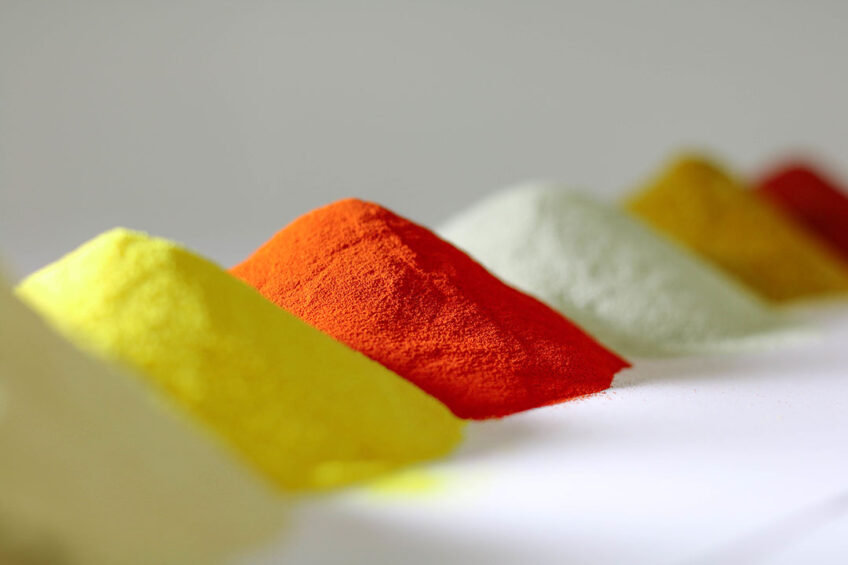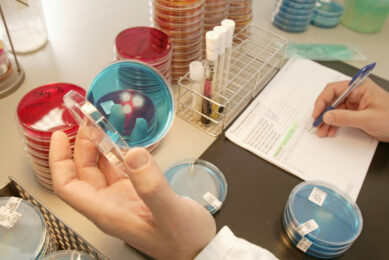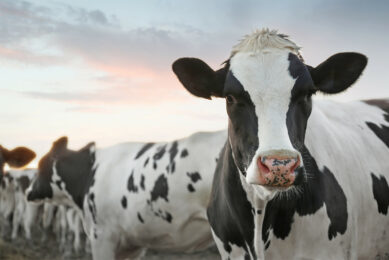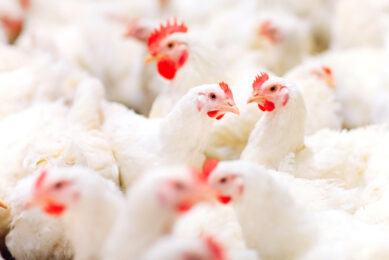Increasing animal resilience via nutrition

Natural nutritional options exist to prevent health disorders that may occur in farms, along with the growing knowledge on the impact of nutrition on animal immunity. For about 15 years, CCPA Group has implemented an ambitious research programme on animal nutrition and health interactions entitled Axion, with the goal of raising animals preserving their health status, and minimising the use of antibiotics.
“Our strength is to have a research expertise from A to Z, to better know the digestive ecosystems of the animals through international research partnerships and to adapt our know-how to the farmers’ issues,” reminds Fabrice Robert, head of R&D of CCPA Group. This knowledge is key as the non-use of antibiotics often goes with a decline in growth and feed efficiency, litter degradation and a microflora change. The increased competition for nutrients between the microbiota and the animal causes a fall of nutrients absorption through the intestinal wall. The non-use of antibiotics is a complex process that requires biosecurity and prevention. Prevention includes a feed control and a precise adjustment of nutrient levels, so as not to lose performance while reducing risks. It also means combining flora management products with inflammation.

Therefore, antibiotic-free production is based on an integrated and multifactorial approach of classifying risks and prevention factors by country and finding a compromise to adjust nutrient levels without losing performance. CCPA Group developed several nutritional programs, for poultry, pigs and ruminants, with conclusive results of demedication in different contexts.
Our strength is to have a research expertise from A to Z, to better know the digestive ecosystems of the animals through international research partnerships and to adapt our know-how to the farmers’ issues,” – Fabrice Robert, head of R&D of CCPA Group.
Results in poultry
Several risk factors may alter the poultry gut mucosa, cause an imbalance in the intestinal flora, and open the way to health problems inducing a reduction in performance. It is possible to protect the gut and maintain the balance of the microflora by selecting qualitative raw materials (anti-nutritional factor-free, with good fibre quality, etc) acting in synergy with specific plant extracts. CCPA Group develops ProActiv’ Poultry, a feed solution promoting intestinal beneficial bacteria, in order to establish optimal gut conditions to drive a better nutrient digestibility and feed efficiency.
In a field trial conducted in 2018 in an experimental station in Latin America on Ross 308 chickens, the use of the ProActiv’ Poultry programme proved to be an efficient alternative to antibiotic growth promoters, with superior results: +4% live weight/chicken and +3.9% profit margin on feed costs (see Figure 1).
Results in swine
CCPA Group has a lot of experience in the development of antibiotic-free piglet nutritional programmes. This started in 2011 with the launch of Ax’Ecla, one of the first non-medicated piglet prestarter feeds on the French market. Now, more than 80% of the piglet prestarter feeds formulated by the company are antibiotic-free and without a high level of zinc oxide (see Figure 2).
This was achieved by working on the following issues:
- Reduction of the indigestible protein fraction, cause of piglet digestive disorders,
- Selection of diversified and highly digestible protein sources, free of anti-nutritional factors,
- Development of a full piglet programme, from the suckling period to post-weaning. CCPA Group developed a specific creep feed, incorporating exclusive specially processed cereals (SPC) wheat, which stimulates the production of anti-secretory factor, limiting water and ions losses from intestinal cells before and also after weaning. As a result, the young piglets suffer less from digestive disorders, with a lasting effect during post-weaning period, this complements the secured prestarter feed,
- The increase of piglet resistance to oxidative stress and inflammation after weaning. The Axion Imm’Ax feed solution, including plant extracts, is specifically designed to strengthen piglets’ natural defences and maintain growth at the post-weaning stage.
The piglet nutritional strategy of CCPA Group thus enables to overcome the challenges of antibiotic reduction and the future zinc oxide ban, without impairing performance levels and profitability of the farms. A long term study led by the Group which took 6 years, within the ProHealth European project, compared performances of 29 farms using either medicated prestarter feeds or secured prestarter feeds without antibiotics and high levels of zinc oxide. The results showed that farms using secured prestarter feeds without medication had similar performance levels and feed cost per kg gain as the ones using medicated prestarter feeds.
We don’t intend to ban all the antibiotics, these must remain active to cure bacterial diseases for man as well as for farm animals,” – Fabrice Robert, head of R&D of CCPA Group.
Results in ruminants
The udder structure evolves during the whole lactation cycle, as for the mammary epithelial cells proliferation and death. During milking, but also between milking, there is also a process of exfoliation of mammary epithelial cells. This loss of epithelial integrity results in increased permeability with potential exchanges between blood and milk, allowing entry of potential pathogens. At each milking, the mammary epithelium loses its integrity and finds it again at the end of milking.
In connection with these phenomena, the CCPA Group has developed Axion Start, a natural feed solution for dairy cows and goats, including a patented extract of Scutellaria baicalensis, grape and green tea extracts, as well as rumino-protected vitamin C for complementary anti-oxidant effects. The product plays a role in the proliferation, secretory capacity of mammary epithelial cells and the integrity of mammary tissues. A better integrity of the mammary epithelium reduces the risk of contamination and therefore leads to healthier animals.
A trial conducted in 2018 with the University of Kansas, US, with experimental groups of dairy cows (control versus Axion Start distributed for 60 days) resulted in a better milk performance over the first 150 days in the supplemented group and also a better persistence of lactation for cows. The Kansas trial also showed that cows supplemented with the product had better mammary epithelial integrity. Other field observations, carried out in 2015 on 22 farms in the north and east of France representing more than a thousand cows, resulted in an average response of 1.5 to 2 litres of additional milk/day/cow.
Keeping animals in balance
“We don’t intend to ban all the antibiotics, these must remain active to cure bacterial diseases for man as well as for farm animals,” concludes Fabrice Robert. “Thanks to a better knowledge of feed ingredients and their physiological impacts, it is important to keep the animal in balance with its environment, in an optimal state of health. Under these conditions, it is definitely possible to manage without antibiotics.”
Author: Zootechnical and marketing departments, CCPA GROUP
Join 13,000+ subscribers
Subscribe to our newsletter to stay updated about all the need-to-know content in the dairy sector, two times a week.






